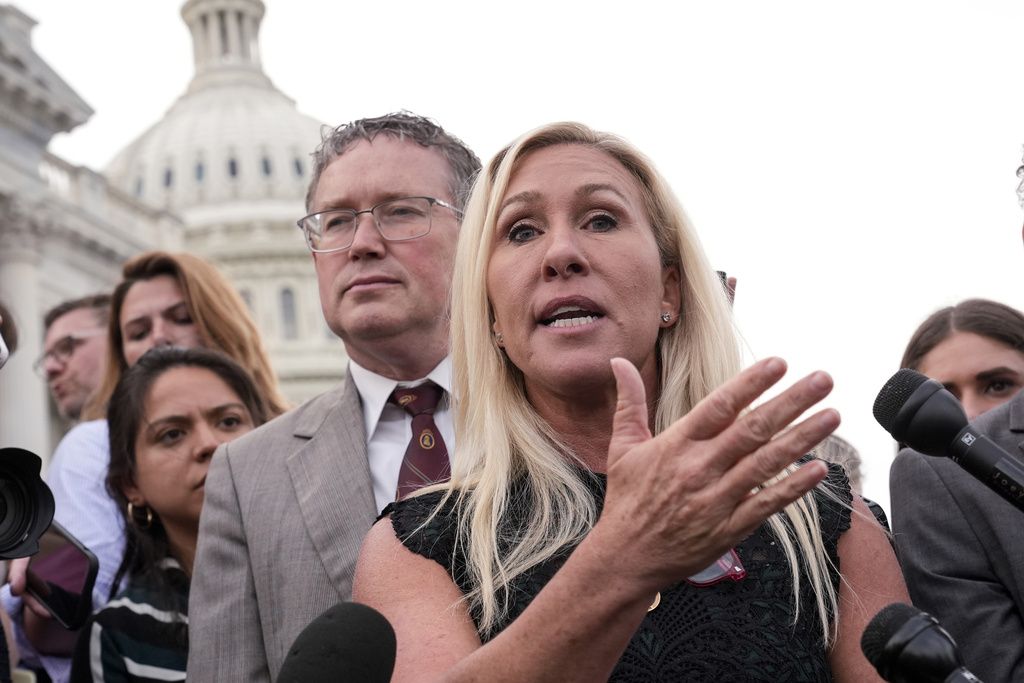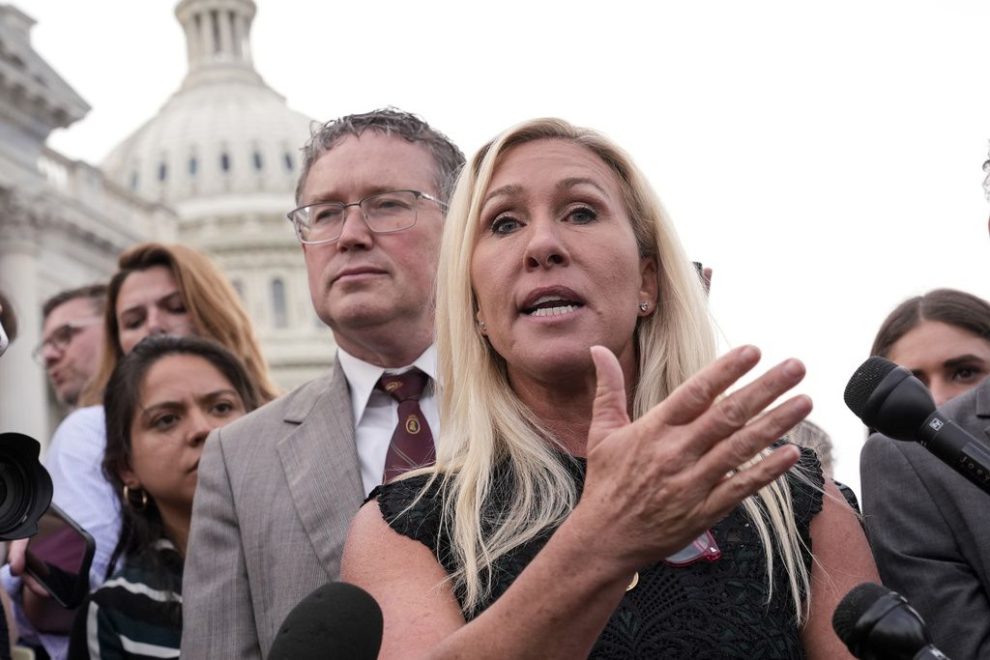A new House Republican-led effort to revoke subpoenas that the Jan. 6 committee sent to key aides of former President Donald Trump may not spare those aides from prison.
The resolution, introduced Tuesday by Reps. Eric Burlison (R-MO), Andy Biggs (R-AZ), and Thomas Massie (R-KY), would rescind subpoenas that the now-defunct committee sent to several former Trump advisers, including Steve Bannon and Peter Navarro. Bannon has been ordered to report for his four-month prison sentence by July 1 for defying the committee’s subpoenas, and Navarro is presently serving time in a Miami prison for a similar offense.

The resolution would withdraw the subpoenas that were issued in the previous Democratic-led 117th Congress and would also withdraw the contempt of Congress resolutions against Bannon and Navarro for their defiance of those subpoenas. Other former aides who could benefit from the subpoena withdrawal resolution include former senior adviser Dan Scavino and ex-chief of staff Mark Meadows.
“It is past time for the House of Representatives to take action to begin undoing the harm that was caused by the illegitimate January 6th Committee,” Burlison said in a statement.
Burlison on Tuesday posted to X, formerly known as Twitter, the list of co-sponsors of the resolution, which includes Reps. Matt Gaetz (R-FL), Marjorie Taylor Greene (R-GA), Chip Roy (R-TX), and 21 other GOP members of the House.
Massie told a user on X that the Senate need not approve the resolution because the “original subpoenas were issued unilaterally from the House, so the House can rescind them unilaterally.”
Philip Wallach, resident scholar at the American Enterprise Institute, said he found the measure to be “mildly abhorrent and Orwellian.”
“The 118th Congress has authority to change anything in the current U.S. Code. But it has no more standing to revoke the resolutions of the 117th Congress than it does to change what the law WAS in 2021,” Wallach wrote.
Wallach said that the GOP’s move would be “a bad look” because of the precedent it could set for future leadership in the House.
“After nullifying past subpoenas, no doubt the next front would be past impeachments — perhaps even striking their very existence from the Congressional Record!” Wallach added.
And even if the resolution were to pass via the House’s ultra-slim GOP majority, there remains the fact that Navarro and Bannon were found guilty by juries in federal court for contempt of Congress. The notion that Congress could undo a conviction made in the judiciary could violate the separation of powers.
The resolution’s proposal comes nearly two weeks after U.S. District Judge Carl Nichols, a Trump appointee, said the “original basis” for his stay of the imposition of Bannon’s sentence no longer applied after an appeals court upheld his conviction. Nichols had previously allowed Bannon to remain out of prison while he pursued an appeal.
CLICK HERE TO READ MORE FROM THE WASHINGTON EXAMINER
Navarro is currently serving his own prison sentence till around the middle of July and is set for a release around the time of the Republican National Convention beginning on July 15.
Bannon has been ordered to report to prison by July 1 but is seeking to challenge Nichols’s decision to lift the stay of his sentence while he simultaneously seeks to challenge the U.S. Court of Appeals for the District of Columbia Circuit’s ruling that upheld his contempt of Congress conviction.
























